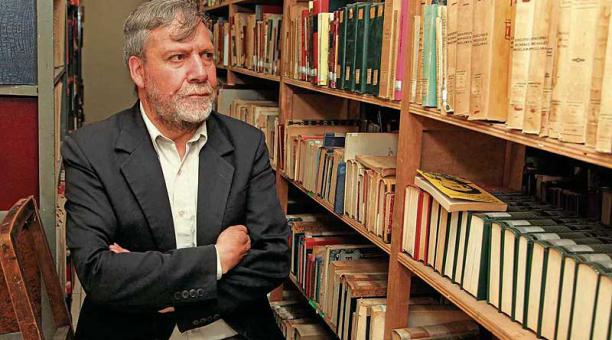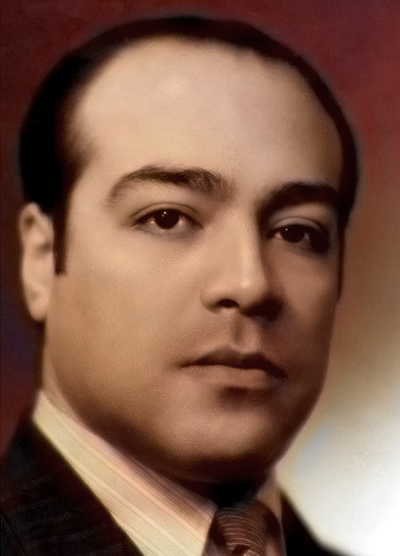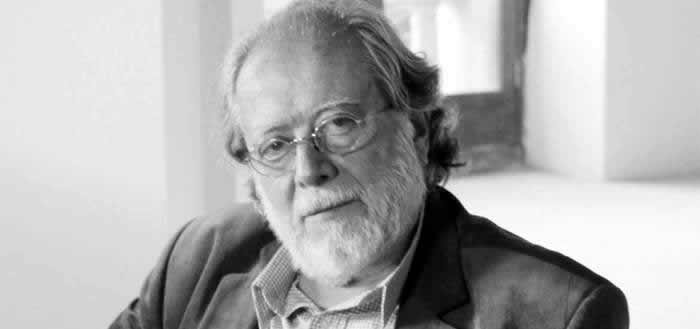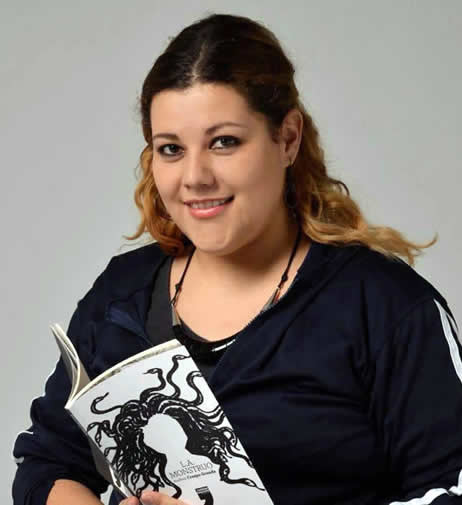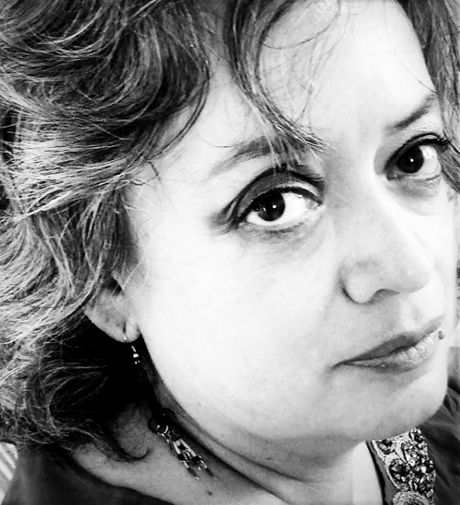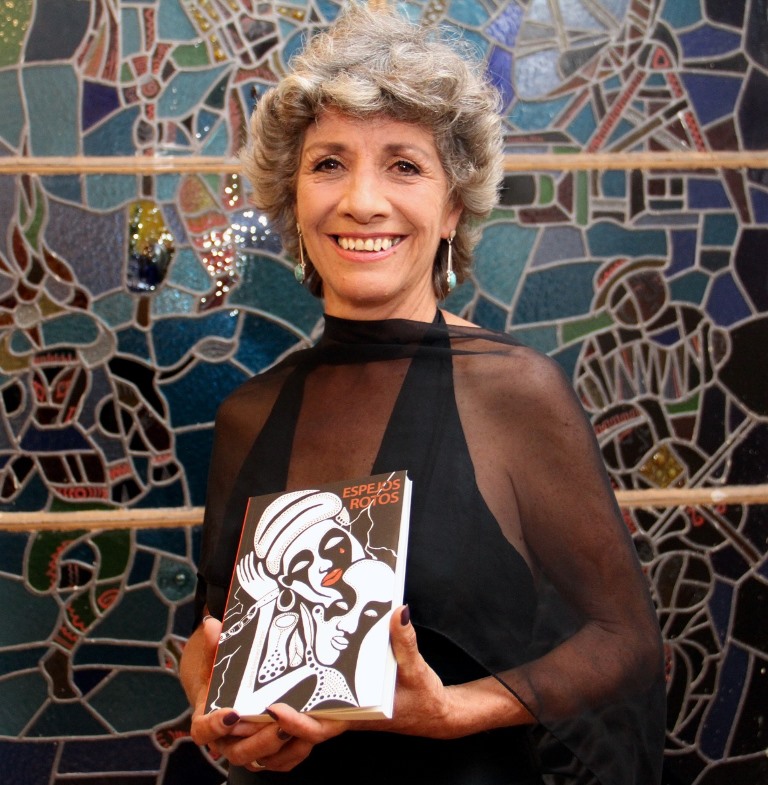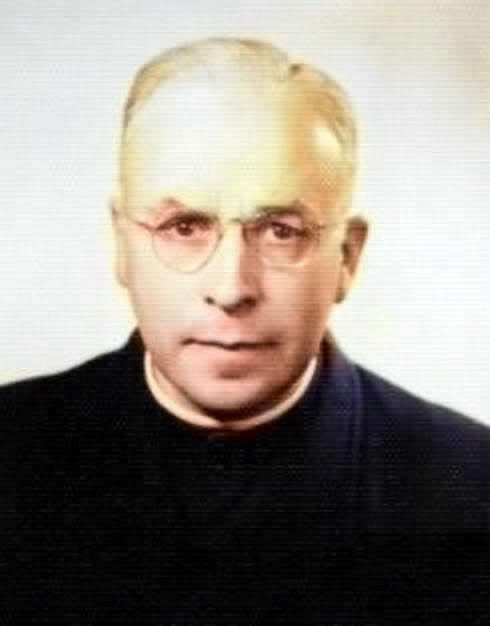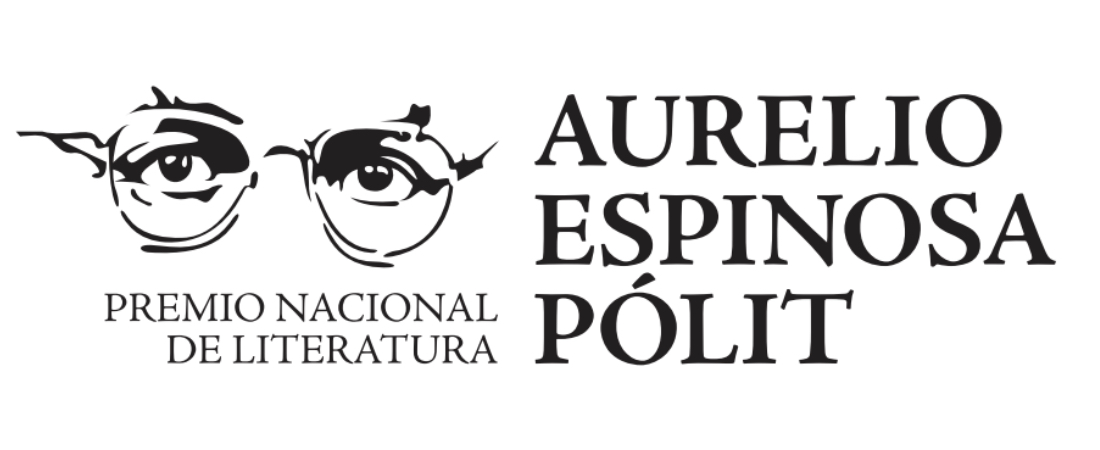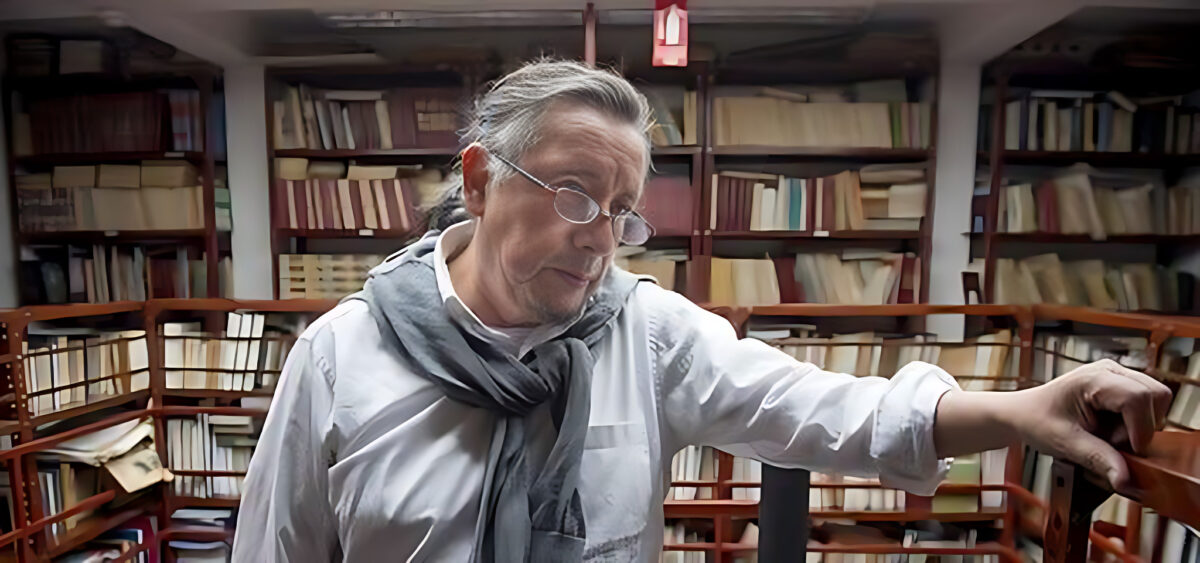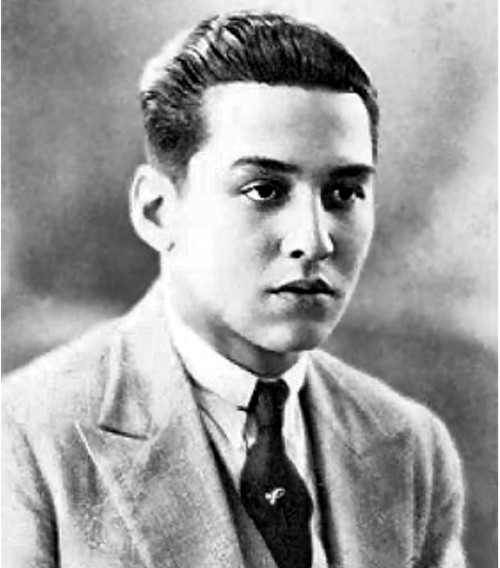Eliécer Cárdenas Espinosa (Cañar, December 10, 1950 – Cuenca, September 26, 2021) was a renowned Ecuadorian novelist, playwright, short story writer, and journalist. Best known for his novel Polvo y ceniza (1979), which remains the best-selling novel in Ecuadorian history, Cárdenas’s works often focused on social justice, indigenous struggles, and the working-class experience in Ecuador. His prolific career included over 20 books across multiple genres, with notable accolades such as the House of Ecuadorian Culture Prize for Polvo y ceniza and the Aurelio Espinosa Pólit Prize for his play Morir en Vilcabamba. Cárdenas also served as editor-in-chief of El Tiempo newspaper in Cuenca and was a corresponding member of the Ecuadorian Academy of Language.
Continue reading “Eliécer Cárdenas”Author: richard
Jorge Carrera Andrade
Jorge Carrera Andrade (Quito, September 18, 1903 – Quito, November 7, 1978) was an Ecuadorian writer, poet, diplomat, and university professor. He was widely regarded as one of the most influential Latin American poets of the twentieth century both during his lifetime and after his death. Muna Lee’s critically-acclaimed translation of his poetry collection, Secret Country (1946), brought him to prominence in the United States. He lectured at Stony Brook University in the Department of Romance Languages in 1970-1972, he also guest lectured at Harvard University and Vassar College during this period. Most of his poetry has been translated into French, German, Russian and English.
Continue reading “Jorge Carrera Andrade”Iván Égüez
Iván Égüez (Quito , 1944) is an Ecuadorian novelist, short story writer, and poet. He has written 7 novels, 7 short story books, and 6 poetry books. His novel “La Linares” was the first recipient of the prestigious Aurelio Espinosa Pólit National Literature Prize in 1975. Controversy ensued when the Pontifical Catholic University of Ecuador, which awards the prize, announced “La Linares” as the prize’s winner, because the book’s main protagonist is a prostitute. It has since gone through a dozen editions in Ecuador and abroad and has been translated into several languages. The “La Linares Short Novel Prize,” which is awarded by the Eugenio Espejo Campaign for Books and Reading, bears the name of Égüez’s groundbreaking work. He was also well known nationally and internationally for his poetry books.
Continue reading “Iván Égüez”Alexis Zaldumbide
Alexis Zaldumbide Manosalvas (Quito, 1982), is an Ecuadorian author who has artfully bridged the realms of literature and music, crafting narratives that resonate deeply with themes of solitude, complexity, and the nuanced dance of human emotions. With “Habitaciones con música de fondo,” he captivated the literary world and secured the prestigious XLIII Aurelio Espinosa Pólit Prize in 2018, an accolade that underscored his adeptness at weaving intricate tales that explore the profound depths of isolation against a backdrop of a richly textured reality. Before this notable achievement, Zaldumbide had already demonstrated his versatile talent through children’s literature with “La puerta azul” and “Las valerosas hazañas de Pedro Mayo,” both published in 2013.
Continue reading “Alexis Zaldumbide”Andrea Crespo
Andrea Priscila Crespo Granda (Guayaquil, October 4, 1983) is an Ecuadorian poet. In 2016 her book of poetry “Registro de la habitada” was awarded the Aurelio Espinosa Pólit Prize. In 2017 her next book of poetry “Libro Hémbrico” won the House of Ecuadorian Culture’s David Ledesma Vásquez National Poetry Contest. She currently teaches at the University of the Arts in Guayaquil, Ecuador.
Continue reading “Andrea Crespo”Lucrecia Maldonado
Lucrecia Maldonado (Quito, May 24, 1962) has written novels, poetry, short stories, children’s literature, and nonfiction. Since 1991 Maldonado has been a language and literature professor at the American School of Quito. Her first novel “Salvo el calvario” (2005) won the prestigious Aurelio Espinosa Pólit Prize.
Continue reading “Lucrecia Maldonado”Elking Araujo
Elking Raymond Araujo is a writer from Ecuador. He was awarded the Aurelio Espinosa Pólit Prize for his book of short stories “Al pie de la letra” (2008). He also wrote the book “Sin pelos en la lengua (ni en otras partes)” (2017). He currently teaches at the School of Language and Literature at the Pontifical Catholic University of Ecuador. Elking does research in Discourse Analysis, Syntax and Pragmatics.
Continue reading “Elking Araujo”The Route of Writers and Artists, in the General Cemetery of Guayaquil, Ecuador.
In the route of writers and artists in the General Cemetery of Guayaquil (also known as the Patrimonial Cemetery of Guayaquil) you can visit the final resting place of such renowned writers as Numa Pompilio Llona, José Joaquín de Olmedo, Jose de la Cuadra, Enrique Gil Gilbert, and Joaquín Gallegos Lara. The tourist route includes a third of the 15 hectares of the cemetery that were declared Cultural Heritage in 2003. A diversity of styles are mixed throughout this cemetery. The architecture between classical and modern, which combines art and funerary aesthetics, draws the attention of locals and foreigners.
Continue reading “The Route of Writers and Artists, in the General Cemetery of Guayaquil, Ecuador.”Sandra Enríquez Garzón
Sandra Enríquez Garzón (Quito, August 10, 1963) is an Ecuadorian writer. From a very young age, she developed a love for reading and the arts, often indulging in narrating stories of her own invention. Her adolescence went by almost unnoticed as she started working at a young age. Tired of the conventional lifestyle, in 1992 she made the decision to move to the Valle de Mindo in the northwest of Pichincha. Her childhood was surrounded by nature, rivers, and animals. Being a lover of good cuisine, she opened a restaurant that became a meeting point for many people for 14 years. At the age of 56, after having traveled through South America by land and seeking new inspiration, she wrote her first novel, “Espejos Rotos” (“Broken Mirrors”). The novel, set between 1830 and 1852, explores the theme of freedom in a historical context, woven into a story of love, magic, and humor. Enríquez has described it as “a story that reflects the years of the past in a broken mirror.”
Continue reading “Sandra Enríquez Garzón”Josué Augusto Durán
Josué Augusto Durán Hermida is a writer from Cuenca, Ecuador. In 2019, at the age of 25, his nonfiction book El abandono de la experiencia (originally titled Minutas de bulla under the pen name San Ambrosio) was awarded the XLIV Aurelio Espinosa Pólit National Prize for Literature. Durán currently resides in Amsterdam, Netherlands.
Continue reading “Josué Augusto Durán”Aurelio Espinosa Pólit
Aurelio Espinosa Pólit (Quito, July 11, 1894 – Quito, January 21, 1961) was an Ecuadorian Jesuit priest, writer, poet, translator, literary critic, and university professor. He co-founded the Pontifical Catholic University of Ecuador and served as its first rector, making significant contributions to education in the country. Renowned for his translations of Latin poets Virgil and Horace, as well as Greek playwright Sophocles, into Spanish, he was a prolific writer who produced over 600 works in his lifetime. Espinosa Pólit also founded the Aurelio Espinosa Pólit Museum and Library in Quito, which became a cornerstone for Ecuadorian literary heritage. In recognition of his impact on literature and culture, the prestigious Aurelio Espinosa Pólit Prize for Literature was named in his honor.
Continue reading “Aurelio Espinosa Pólit”The Aurelio Espinosa Pólit National Literature Award
The Aurelio Espinosa Pólit National Literature Award (Premio Nacional de Literatura Aurelio Espinosa Pólit), established by the Pontifical Catholic University of Ecuador (PUCE) in 1975, is a prestigious honor that celebrates the literary achievements of Ecuadorian writers. Named after the renowned writer Aurelio Espinosa Pólit (1894-1961), this award holds great significance within the country’s literary landscape. It recognizes outstanding Ecuadorian writers in the categories of poetry, nonfiction, short story, novel, and theater, making it one of the most significant literary prizes in the country, along with the Eugenio Espejo Prize.
Continue reading “The Aurelio Espinosa Pólit National Literature Award”Huilo Ruales
Huilo Ruales Hualca (Ibarra, Ecuador, March 25, 1947) is a prominent Ecuadorian writer whose work spans multiple genres, including novels, short stories, poetry, theater, and chronicles. Known for his exploration of marginalized characters and social outcasts, Ruales’ gritty and poetic prose has garnered significant recognition, including the Premio Joaquín Gallegos Lara (1989) and the Premio Aurelio Espinosa Pólit (1994). His writing has been translated into several languages, and he currently resides in Paris, France.
Continue reading “Huilo Ruales”José de la Cuadra
José de la Cuadra Vargas (September 3, 1903 – February 27, 1941) is considered one of Ecuador’s greatest authors. De la Cuadra was a social realist novelist who wrote the short story La Tigra (1932) and the novel Los Sangurimas (1939). He was a part of the “Guayaquil Group,” a group of young social protest novelists from Guayaquil, Ecuador, in the 1930s, which included Enrique Gil Gilbert, Demetrio Aguilera Malta, Joaqun Gallegos Lara, and Alfredo Pareja Diezcanseco.
Continue reading “José de la Cuadra”The Joaquín Gallegos Lara National Fiction Prize
The Joaquín Gallegos Lara National Fiction Prize (Spanish: Premio Nacional de Narrativa Joaquín Gallegos Lara) is a prestigious literary award in Ecuador, named after the renowned Ecuadorian writer Joaquín Gallegos Lara. This prize honors outstanding contributions in the field of fiction, celebrating works that demonstrate exceptional narrative skill and innovation. Established to recognize and encourage literary talent within Ecuador, the award has become a symbol of excellence in storytelling, fostering a rich literary culture in the country. Each year, it draws submissions from a diverse range of authors, showcasing the depth and variety of Ecuadorian fiction. The winning works often explore complex themes and reflect the social, cultural, and historical landscape of Ecuador, contributing significantly to the nation’s literary heritage. The Joaquín Gallegos Lara Prize not only honors individual achievements but also highlights the importance of literature as a means of cultural expression and intellectual exploration in Ecuador. Since 1989 has been awarded yearly by the Municipality of Quito, Ecuador to the best national works in three categories: the short story, the novel, and theater.
Continue reading “The Joaquín Gallegos Lara National Fiction Prize”
